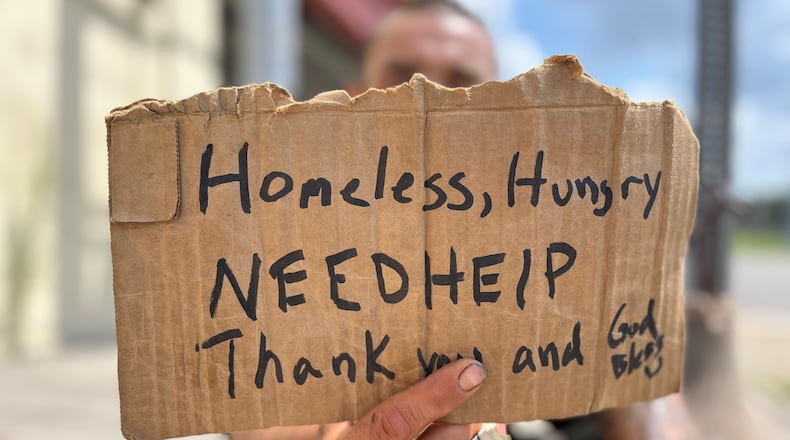One of the main goals is to reduce contacts between police officers and citizens, which can escalate into arrest, criminal charges and use of force. The program also will free up officers to focus on more serious crimes and threats to public safety, officials say.
“Data showing a significant increase in mental health and suicide calls ... combined with consistent requests from police to add additional alternative responders showed the need for the CRU (Crisis Response Unit),” said Dayton City Manager Shelley Dickstein.
A mobile Crisis Response Unit focused on mental and behavioral health already is operating in Montgomery County, but officials say it’s a little different, and the community needs all the help it can get to deal with these issues.
Between March 2021 and September 2022, the city of Dayton saw a 73% increase in mental health calls to 911 and a 111% increase in suicide calls, according to city documents.
State funding
The Dayton City Commission recently had the first reading of a resolution to authorize the city to accept a nearly $1.5 million state grant to create a new Crisis Response Unit.
The crisis team will respond to mental health calls in the city that come through 911 regional dispatch, said Erin Ritter, Dayton’s human services manager.
The unit will divert calls away from the police department, giving officers additional time to focus on calls and matters more appropriate for law enforcement, she said.
This program will better serve the community by sending skilled, trained responders and clinicians to assist people in mental health crisis, Ritter said, and will provide a safer and more effective response.
The new Crisis Response Unit is modeled after the Mediation Response Unit, which also sends teams of two non-law enforcement professionals to calls for service that come into 911 dispatch.
The mediation unit launched in May 2022 and already has responded to more than 2,750 calls.
The crisis and mediation response units were developed based on recommendations from the city’s police reform committees.
Credit: Contributed
Credit: Contributed
Reform committee members said they want to minimize contacts between members of the public and police officers when they are working in an enforcement capacity.
Alternative response models are meant to better help people who are homeless, intoxicated, trespassing or struggling with substance abuse or mental and behavioral health issues.
Last fall, Dayton police officer Zachary Boone helped safely resolve a situation in which a man was threatening to jump off the Stewart Stewart bridge. Police regularly encounter people in crisis, and Boone, like many officers, had received crisis intervention training.
But officials say police officers want assistance from trained experts, who can lighten the load and who understand these members of the community best.
The state grant will pay for the city’s program for the next two years. The Crisis Response Unit is expected to begin operations this fall or winter, with hours from 11 a.m. to 8 p.m. Monday through Saturday.
In January of 2022, the nonprofit RI International launched a “Crisis Now” model in Montgomery County that also is focused on helping people dealing with mental and behavioral health concerns.
Crisis Now currently operates a crisis call center and a mobile crisis response team and it is going to open a crisis receiving center, probably this fall.
Credit: JIM NOELKER
Credit: JIM NOELKER
In 2022, the crisis call center received 12,024 calls, and the mobile crisis response team was called out about 600 times.
Through the first half of this year, the call center received about 9,850 calls, and the mobile team deployed about 690 times.
Montgomery County will be the first place in the nation to have all three prongs of the Crisis Now model (call center, response team, receiving center) operating in the same community, said Tina Rezash Rogal, director of strategic initiatives and communication with Montgomery County Alcohol, Drug Addiction and Mental Health Services.
“RI International has been communicating with the city of Dayton since the Crisis Now model launched in January of 2022,” she said. “The Crisis Now model will work in partnership with the city of Dayton’s mobile crisis response team to make sure all of the residents in Montgomery County are receiving crisis mental health services.”
About the Author




